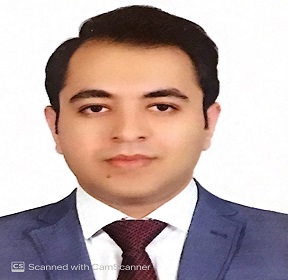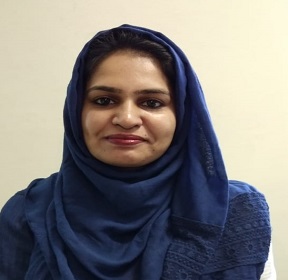Speakers
Moein Masjedi
Shiraz University of Medical Sciences IranTitle: An illustrated review on nonionic surfactant vesicles (niosomes) as an approach in modern drug delivery: fabrication, characterization, pharmaceutical, and cosmetic applications
Abstract:
After the beginning of nanotechnology, nanomedicines have attracted great attention for more efficient and safe drug delivery. In this regard, a large number of studies have been allocated to nanosized vesicular systems such as liposomes. Niosomes, the newer generation of vesicular nanocarriers are self-assembled vesicles composed of nonionic surfactants with/without appropriate amounts of cholesterol or other amphiphilic molecules. Similar to liposomes, niosomes can be uni- or multilamellar, have the ability to embed both lipophilic and hydrophilic bioactive substances. Nanosized niosomes can deliver the drug to the active site. Moreover, they have the advantages of improving pharmacokinetics, lowering toxicity, improving the solubility of poorly water-soluble drugs, and bioavailability. Compared to liposomes, niosomes have fewer production costs and more stability during storage. This up-to-date illustrated review covers the composition, fabrication techniques, and their advantages and drawbacks, characterization, administration routes, and pharmaceutical and cosmetic applications of nonionic surfactant vesicles.
Keywords: Nonionic surfactant; niosome; drug delivery; route of administration; vesicular carrier; nanocarrier
Biography:
Moein Masjedi has completed his PhD at the age of 29 years from Shiraz University of Medical Sciences. He is CEO of Daroosazan Sorena Exir Cosmetic Company (DSE Co.), a nanotechnology-based cosmetic manufacturing company. He has published more than 9 papers in reputed journals.
Shamaki, B U
University of Maiduguri NigeriaTitle: Novel therapeutic agent against squamous cell carcinoma in sheep using wild ganoderma specie based petrolatum paste in nigeria
Abstract:
Background: Squamous cell carcinoma (SCC) or skin cancer is the most common type of cancer in animals worldwide. There are claims of anticancer potentials of the wild Ganoderma sp that is currently undergoing research, however, most of these researches involved in vitro studies using cell lines. Methodology: A female sheep (Balami breed) was observed with cauliflower-like growth and histopathological analysis from skin biopsy revealed that it is Squamous cell carcinoma. Using a paste made from wild Ganoderma sp based jelly (6.7mg/ml), it was applied daily for two consecutive months on the specific growth areas. Results: the tumorous growth was observed to progressively regress following treatment, until completely cured after two months of topical application of the wild Ganoderma sp based paste. Conclusion: This study demonstrated that wild Ganoderma sp paste preparation alone can cure squamous cell carcinoma in sheep and may be a potential novel anticancer agent for veterinary use.
Keywords: Wild Ganoderma specie, cancer, treatment, Sheep, (Balami breed), in vivo.
Biography:
Bala Usman Shamaki graduated with Doctor of Veterinary Medicine (DVM) in 1995, and worked as Veterinary Research officer II, at the Nigerian Institute for Trypanosomiasis Research (NITR) Vom, Plateau state Nigeria, and rose to become Ag. Head of Veterinary Livestock (VLS) in 2008, He acquired his M.Sc. Veterinary Pharmacology at Usumanu Danfodiyo University Sokoto (2008) and was employed as Lecturer II in the then the Department of Veterinary Physiology, Pharmacology and Biochemistry University of Maiduguri. He graduated with PhD Pharmacology at University of Maiduguri in 2014. He is currently a Professor of Pharmacology in Department of Veterinary Pharmacology and Toxicology, Faculty of Veterinary Medicine, University of Maiduguri. He has over 100 publications that were cited over 350 times and his publication H-index is 10 and has been serving as editorial board member of reputable journals.
Foziyah Zakir
Delhi Pharmaceutical Sciences and Research University IndiaTitle: Intranasal delivery system as new treatment paradigm for the treatment of postmenopausal osteoporosis
Abstract:
Osteoporosis is the most prevailing disease in postmenopausal women leading to increased risk of fractures, pain and low quality of life. It is a progressive bone disease which remains unnoticed until a fracture occurs. The disease is more predominant in older age population particularly females due to reduced estrogen levels and limited calcium absorption. The cost burden of treating osteoporotic fractures is too expensive therefore primary focus should be treatment at an early stage. Most of the marketed drugs are available as oral delivery dosage forms. The complications as well as patient non-compliance limit the use of oral therapy for prolonged drug delivery. Intranasal delivery system seems to be a promising approach for systemic delivery of drugs through nasal cavity bypassing the first-pass effect. Intranasal delivery has the potential to improve the absorption of the drug, enhance the bioavailability, and provide better patient compliance as well as possibility of self administration. Most of the osteoporotic medications are not absorbed orally due to proteomic nature or first pass metabolism. Therefore, a suitable delivery system can be designed to promote intranasal delivery of therapeutics. We have developed an intranasal in-situ thermosensitive nanoemulgel of raloxifene hydrochloride to overcome the pharmaco-technical limitations of the drug. The delivery system boosted the bioavailability of raloxifene hydrochloride by 7 fold and improved the bone mineral density by 162% when compared with marketed oral tablets.
Biography:
Zakir has completed her PhD from Jamia Hamdard (NIRF rank 1), India. Dr. Zakir is currently working as an Asst. Prof., Delhi Pharmaceutical Sciences and Research University (India’s First Pharmacy University and second in the world). She has more than 20 referred articles in high impact journals >4 (h-index=9, >400 citations). She has authored numerous book chapters by Elsevier and Bentham publishers. She has published more than 50 conference proceedings and abstracts. Dr. Zakir has received research funding of 20,00,00 INR from Department of Science and Technology. She has received Award for Academic Excellence in 2010.



